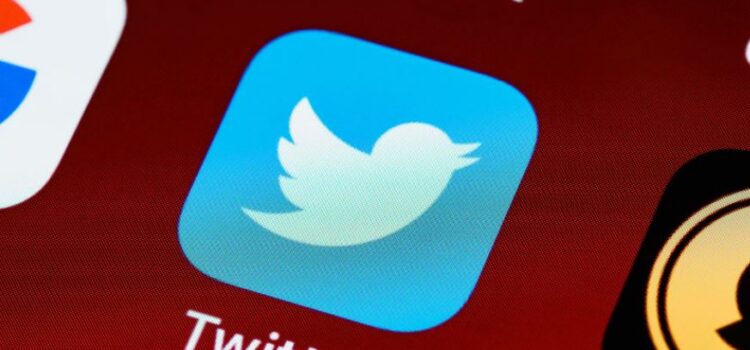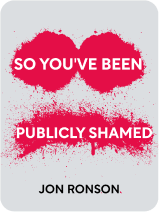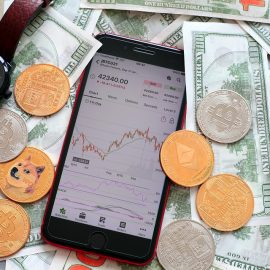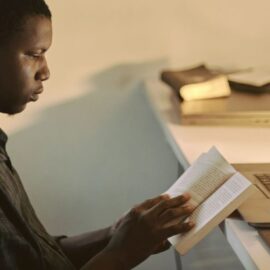

This article is an excerpt from the Shortform book guide to "So You've Been Publicly Shamed" by Jon Ronson. Shortform has the world's best summaries and analyses of books you should be reading.
Like this article? Sign up for a free trial here .
What did Justine Sacco write in her infamous tweet? How did the public react to her comment?
On December 20, 2013, Justine Sacco posted the following tweet before getting on a flight to Africa: “Going to Africa. Hope I don’t get AIDS. Just kidding. I’m white!” Justine Sacco’s tweet was meant to be a comment on white privilege: white people have an easier time feeling like they’re immune to certain issues. But people misunderstood it and shamed Sacco for being racist.
Here goes the story of how Justine Sacco’s tweet became the world’s top story.
Justine Sacco’s Tweet Goes Viral
In December 2013, Sacco was traveling for the holidays. Justine Sacco tweeted caustic, clueless jokes about people on her flight and the cities she laid over in. Half an hour before getting on her flight to Africa, she posted her tweet about Africa. She didn’t get any responses before she got on the flight and was offline for the eleven hours she was in the air.
One of Sacco’s 170 twitter followers sent the tweet to Gawker journalist Sam Biddle. Biddle thought the tweet was gold—usually, powerful people can get away with things that regular people can’t, but here was a PR chief being publicly and openly racist, and the internet had the opportunity to hold her accountable. Biddle and others retweeted Justine’s tweet, and it tore around the internet, inspiring massive shaming.
People assumed Sacco was a privileged, racist, spoiled brat because she shared a surname with Desmond Sacco, an African mining tycoon. In fact, she wasn’t related to Desmond and wasn’t rich or very privileged. However, she seemed close enough, so people rewrote her identity. Likely, many of the people who joined in the shaming thought that by calling her out, they were doing good.
According to BuzzFeed, a hundred thousand tweets appeared in response to Sacco’s post. Some called Sacco racist, a bitch, or a cunt. (Many people find it most effective to shame people by calling for the worst things that could possibly happen to them, which for women tends to be sexaul assault because it’s massively degrading.) Her employer, IAC, tweeted that her comment was offensive and other employees tweeted about how they didn’t want to work with her. Many people tweeted about how she was going to feel when she turned on her phone and realized what was going on. Someone invented the hashtag #HasSaccoLandedYet.
Biddle hadn’t expected such a response but he thought it was justified because Sacco was racist. He also expected everyone would get over it eventually.
Ronson also encountered the tweet while Sacco was in the air and his first reaction was a little bit of glee that someone was “fucked.” Shortly after, though, he wondered if Twitter was
suffering from some sort of crowd theory because though the tweet wasn’t a very good joke and was badly worded, it wasn’t actually racist.
Immediate Aftermath
Sacco didn’t find out what was happening until she landed and her phone exploded. Some of the messages she received were sympathetic: Someone she’d known in high school texted her that they were sorry for what she was going through, and her best friend Hannah explained that she was the number-one trend worldwide. However, mainly, the messages were shaming. One Twitter user even went to the airport to take a photo of her and tweeted it with a message about how she was wearing sunglasses to hide.
Sacco issued an apology statement. It didn’t stop the shaming. She had to leave Africa early—her South African aunt told her she’d almost tarnished the family name and people who worked at hotels Sacco had reservations at threatened to go on strike. Her safety was in danger.
When Sacco got back to New York, the New York Post followed her to the gym and other papers went through her Twitter feed to try to dig up more offensive posts.
Reporting about the tweet was cautious. Writers acknowledged that lots of people write stupid things on Twitter that have the potential to be misinterpreted and blow up, but also made sure to not defend what Sacco had said.
Google made money off Sacco’s ruin—Jonathan Hersh, an economics researcher, conservatively estimates $120,000. According to Google Adwords, in the two months before the tweet, Sacco was googled thirty times a month. Between December 20th and 31st 2013, she was googled over a million times, and Google makes money in ad revenue every time anyone searches for anything. (Even if no advertisers linked their product to Sacco’s name, it’s likely that people who wouldn’t have otherwise been using Google at the time searched for her and then rabbitholed to a site that did use Google’s advertising.)
Long-Term Consequences
In the wake of the shaming, Sacco was fired. She had loved her job and felt like she’d lost her identity and purpose. Her personal life was affected too—she couldn’t date or meet new people because if anyone were to Google her, they’d find evidence of the shaming and cut contact. She cried often and struggled to sleep.
Sacco didn’t want to talk to journalists—the experience was so harrowing that she didn’t want to relive it. She also didn’t really want to be in Ronson’s book because this might open her to new criticism. However, she thought it was important that people see what had happened to her and how “crazy” her situation became, so she interviewed with him three weeks after the tweet went viral.
Sacco thought her situation was crazy because she thought it was obvious that she wasn’t being literal with her tweet. She didn’t understand how anyone could believe that anyone else actually thought that white people didn’t get AIDS. She was trying to make fun of the bubble white Americans live in and the fact that they aren’t aware of serious situations elsewhere.
Ronson thought the tweet was badly written, and because Sacco’s whole feed was acerbic, it wasn’t surprising that people had thought she was racist. On the other hand, he thought that people must have realized what she was trying to say and had chosen to misunderstand her. Ronson thinks that we use social media for drama since our regular lives tend to be plodding. On social media, everyone’s a flatter, less complicated version of themselves and can be easily slotted into hero or villain categories for our entertainment.
Sacco hoped that over time her situation would turn out differently from Lehrer’s because he had lied and comprised his integrity, but she had just done something stupid.
Almost immediately after the shaming, Sacco was offered a new job with a yachting company in Florida, which she thought was odd as she had no experience with yachts. She was worried the company employed people who actually thought white people couldn’t get AIDS and didn’t take the job.
After rejecting the job offer, Sacco went to Ethiopia for a month to volunteer with an NGO that worked towards lowering maternal mortality rates. She enjoyed the experience, but it wasn’t her calling, and she returned to New York. She got some temporary work in PR, but her career hadn’t recovered.
(Shortform note: In 2018, Sacco got a new job with the company that had fired her for the tweet.)

———End of Preview———
Like what you just read? Read the rest of the world's best book summary and analysis of Jon Ronson's "So You've Been Publicly Shamed" at Shortform .
Here's what you'll find in our full So You've Been Publicly Shamed summary :
- How public shaming can ruin people's lives
- Why public shaming isn't just a way to get corporations to do the "right thing"
- 6 strategies you can use if you're a victim of public shaming






